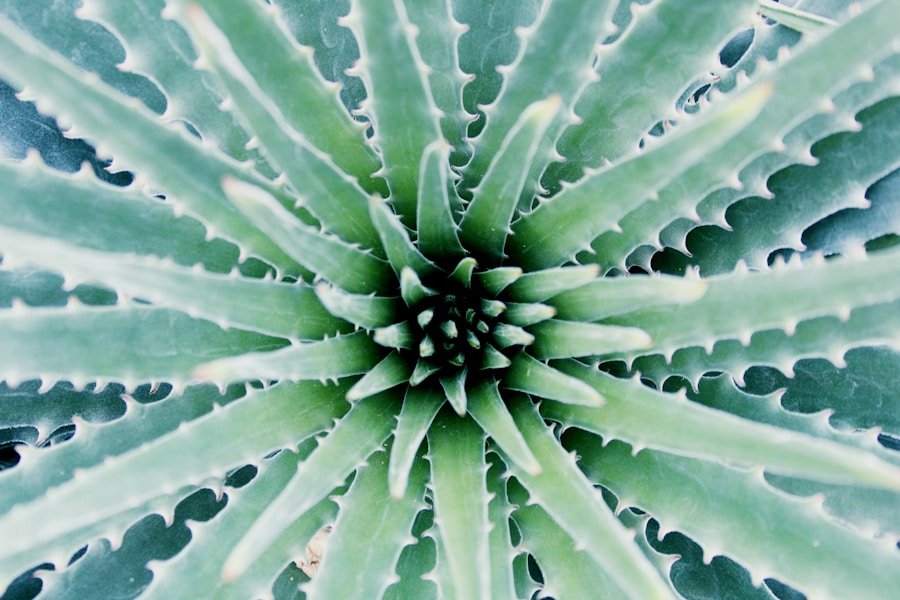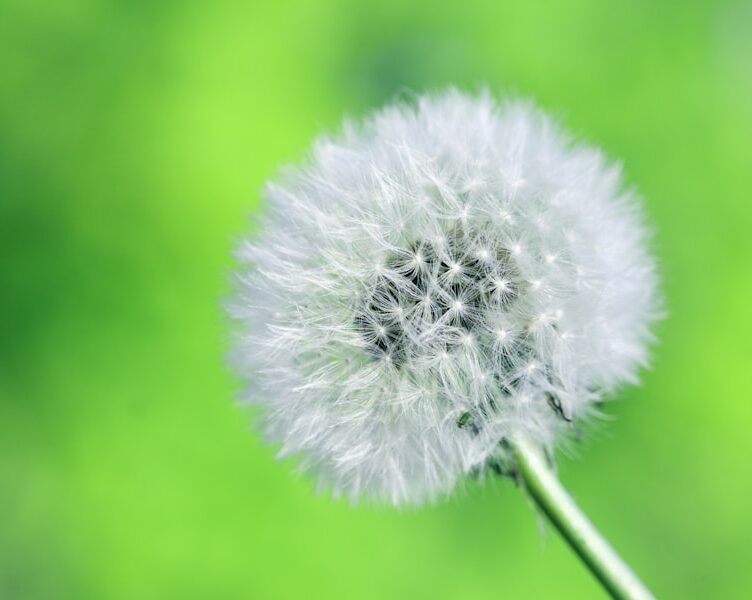Cultivating medicinal plants indoors offers a diverse range of options. Several popular and easily grown medicinal plants include aloe vera, lavender, peppermint, chamomile, and rosemary. Aloe vera is renowned for its soothing properties, which make it effective in treating burns and skin irritations.
Lavender is valued for its calming effects and can be utilized to prepare teas or essential oils. Peppermint is recognized for its digestive benefits and can be consumed as a tea or added to recipes. Chamomile is a popular medicinal plant that promotes relaxation and improves sleep quality.
Rosemary, with its antioxidant properties, is commonly used in cooking or to produce essential oils. Beyond these well-known medicinal plants, numerous other options are available for indoor cultivation. Other popular choices include lemon balm, sage, thyme, and basil.
Lemon balm is often used to alleviate stress and anxiety, while sage is prized for its antibacterial properties. Thyme is commonly used to treat respiratory issues and can be incorporated into cooking or tea preparations. Basil, with its anti-inflammatory properties, is a popular addition to cooking and pesto recipes.
With such a wide range of options available, it is easy to select the ideal medicinal plants for indoor cultivation.
Key Takeaways
- Some common medicinal plants that can be cultivated indoors include aloe vera, peppermint, lavender, and chamomile.
- Cultivating medicinal plants indoors can provide easy access to natural remedies and promote a healthier indoor environment.
- Popular medicinal plants for indoor cultivation include basil, thyme, rosemary, and sage, which can be used for culinary and medicinal purposes.
- Caring for medicinal plants indoors involves providing adequate sunlight, water, and proper drainage, as well as regular pruning and repotting.
- Creating an indoor medicinal herb garden can be achieved by choosing the right containers, using quality soil, and incorporating a variety of plants with different healing properties.
Benefits of cultivating medicinal plants indoors
Convenience and Accessibility
Growing medicinal plants indoors provides the convenience of having natural remedies readily available in your own home. This allows you to have a steady supply of herbs and plants that can be used to treat various ailments and promote overall wellness.
Control and Sustainability
Cultivating medicinal plants indoors gives you control over the growing conditions, ensuring that the plants are free from pesticides and other harmful chemicals. This approach also allows you to save money on store-bought remedies and adopt a sustainable and eco-friendly approach to healthcare.
A Therapeutic Hobby
Growing medicinal plants indoors can be a therapeutic and rewarding hobby. Taking care of plants and watching them grow can be a calming and fulfilling experience, providing a sense of accomplishment and connection to nature.
Popular medicinal plants for indoor cultivation
When it comes to indoor cultivation of medicinal plants, there are several popular options to choose from. Aloe vera is a versatile plant that is easy to grow indoors and has a variety of medicinal uses. It can be used to treat burns, cuts, and skin irritations, making it a valuable addition to any indoor garden.
Another popular choice for indoor cultivation is lavender, which is known for its calming effects and can be used to make teas or essential oils. Peppermint is another popular choice for indoor cultivation, as it is known for its digestive benefits and can be used to make teas or added to recipes. Chamomile is another popular medicinal plant that is often grown indoors for its relaxation and sleep-promoting properties.
It can be used to make teas or added to bathwater for a soothing experience. Lastly, rosemary is a popular choice for indoor cultivation due to its antioxidant properties and its versatility in cooking and making essential oils. These popular medicinal plants are not only easy to grow indoors, but also have a wide range of uses for natural remedies.
How to care for medicinal plants indoors
| Medicinal Plant | Benefits | Growing Conditions |
|---|---|---|
| Aloe Vera | Healing burns, soothing skin irritation | Well-drained soil, bright light |
| Lavender | Relaxation, stress relief | Well-drained soil, full sun |
| Mint | Digestive aid, headache relief | Moist soil, partial shade |
| Rosemary | Memory enhancement, immune support | Well-drained soil, full sun |
Caring for medicinal plants indoors requires attention to their specific needs in terms of light, water, and soil. Most medicinal plants thrive in well-draining soil that is rich in nutrients. It’s important to choose a potting mix that provides good drainage while also retaining moisture.
Additionally, providing the right amount of light is crucial for the growth of medicinal plants. Most medicinal plants prefer bright, indirect light, so placing them near a sunny window or using grow lights can help them thrive indoors. When it comes to watering medicinal plants indoors, it’s important to strike a balance between keeping the soil moist and avoiding overwatering.
Most medicinal plants prefer slightly moist soil, so it’s important to water them when the top inch of soil feels dry. It’s also important to avoid getting the leaves wet when watering, as this can lead to mold and disease. Lastly, it’s important to monitor the humidity levels in the indoor environment, as some medicinal plants prefer higher humidity levels.
Using a humidifier or misting the plants can help create the ideal growing conditions for indoor cultivation.
Tips for creating an indoor medicinal herb garden
Creating an indoor medicinal herb garden requires careful planning and consideration of the specific needs of each plant. One tip for creating an indoor herb garden is to choose a variety of plants that have different growing requirements but can thrive in similar conditions. This allows you to create a diverse garden that provides a range of medicinal benefits while also ensuring that each plant receives the care it needs.
Additionally, it’s important to consider the space available for your indoor herb garden and choose plants that will fit well in the designated area. Another tip for creating an indoor medicinal herb garden is to label each plant with its name and specific care instructions. This can help you keep track of each plant’s needs and ensure that they receive the proper care.
Additionally, it’s important to regularly prune and harvest your indoor herb garden to promote healthy growth and prevent overcrowding. This not only helps the plants thrive but also allows you to enjoy the benefits of fresh herbs for natural remedies.
Using indoor medicinal plants for natural remedies
Natural Remedies for Common Ailments
Many common ailments and health issues can be treated with natural remedies made from indoor-grown medicinal plants. For example, aloe vera can be used to soothe sunburns and skin irritations, while lavender can be used to promote relaxation and improve sleep. Peppermint can be used to aid digestion and relieve headaches, while chamomile can be used as a natural remedy for anxiety and stress.
Versatile Uses of Medicinal Plants
In addition to these common uses, there are many other ways to use indoor-grown medicinal plants for natural remedies. For example, rosemary can be used as an antioxidant-rich ingredient in homemade skincare products or as a natural remedy for respiratory issues when used in teas or steam inhalations. Lemon balm can be used as a natural remedy for cold sores or as an ingredient in homemade lip balms. Sage can be used as a natural remedy for sore throats or as an ingredient in homemade throat sprays.
A Sustainable and Cost-Effective Solution
With so many options available, cultivating medicinal plants indoors provides a sustainable and cost-effective way to incorporate natural remedies into your daily routine.
Indoor cultivation of medicinal plants for sustainable living
Indoor cultivation of medicinal plants offers numerous benefits for sustainable living. By growing your own medicinal plants indoors, you can reduce your reliance on store-bought remedies that often come with excessive packaging and environmental impact. Additionally, cultivating medicinal plants indoors allows you to have control over the growing conditions, ensuring that the plants are free from pesticides and other harmful chemicals that can negatively impact the environment.
Furthermore, indoor cultivation of medicinal plants promotes biodiversity by providing a habitat for beneficial insects such as bees and butterflies. This not only supports local ecosystems but also contributes to the overall health of the environment. Additionally, growing your own medicinal plants indoors reduces the carbon footprint associated with transportation and production of store-bought remedies.
By incorporating indoor cultivation of medicinal plants into your sustainable living practices, you can contribute to a healthier planet while also reaping the benefits of natural remedies.
Incorporating indoor medicinal plants into your daily routine
Incorporating indoor-grown medicinal plants into your daily routine is a simple way to promote overall wellness and self-care. There are numerous ways to incorporate these plants into your daily routine, from using them in cooking and skincare products to making teas and tinctures for natural remedies. For example, adding fresh herbs such as basil, thyme, and rosemary into your cooking not only enhances the flavor of your meals but also provides added health benefits.
Additionally, using essential oils made from indoor-grown medicinal plants in aromatherapy or skincare routines can promote relaxation and improve skin health. Making teas from dried herbs such as chamomile or peppermint provides a soothing way to unwind at the end of the day while also reaping the health benefits of these natural remedies. By incorporating indoor-grown medicinal plants into your daily routine, you can enjoy the therapeutic benefits of these plants while also promoting overall wellness in a sustainable and eco-friendly way.
In conclusion, cultivating medicinal plants indoors offers numerous benefits for overall wellness, sustainability, and self-sufficiency. With a wide variety of popular options available for indoor cultivation, it’s easy to find the perfect medicinal plants to grow at home. By providing the proper care and attention, these plants can thrive indoors and provide a sustainable source of natural remedies for a variety of health issues.
Incorporating indoor-grown medicinal plants into your daily routine not only promotes overall wellness but also supports sustainable living practices by reducing reliance on store-bought remedies with excessive packaging and environmental impact. Whether you’re looking to enhance your cooking with fresh herbs or create homemade skincare products with essential oils, cultivating medicinal plants indoors provides a rewarding and eco-friendly way to promote health and well-being.
FAQs
What are medicinal plants?
Medicinal plants are plants that have been used for their therapeutic properties for centuries. They contain compounds that have been found to have medicinal benefits for various health conditions.
Why cultivate medicinal plants indoors?
Cultivating medicinal plants indoors allows for easy access to fresh herbs for medicinal purposes. It also provides a controlled environment for the plants to thrive, especially in areas with harsh weather conditions.
What are some common medicinal plants that can be cultivated indoors?
Some common medicinal plants that can be cultivated indoors include aloe vera, peppermint, chamomile, lavender, and basil. These plants have various medicinal properties and can be used in teas, tinctures, and topical applications.
How can medicinal plants be cultivated indoors?
Medicinal plants can be cultivated indoors using pots or containers with well-draining soil, adequate sunlight, and regular watering. It is important to research the specific needs of each plant to ensure proper care and cultivation.
What are the benefits of cultivating medicinal plants indoors?
Cultivating medicinal plants indoors provides a convenient and sustainable source of natural remedies. It also allows for a closer connection to nature and the opportunity to learn about the medicinal properties of different plants.


